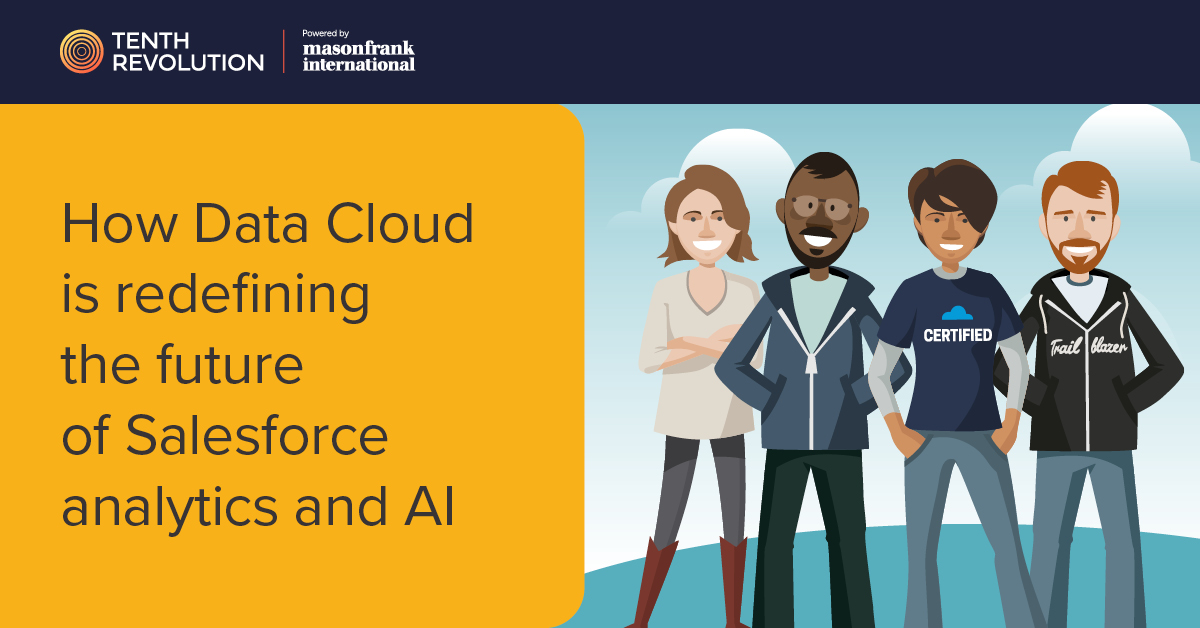
Salesforce is turning Data Cloud into more than a customer data platform. It is becoming the real-time foundation for analytics and AI across the entire enterprise.
Data Cloud has evolved rapidly. Once seen as a tool for unifying customer data, it now acts as the connective layer between every Salesforce application and external data source. Its purpose is clear: to give organizations a single, trusted system of record that powers analytics, AI, and personalization at scale.
For business leaders, this shift represents a new phase in how data drives performance. The combination of real-time data access, federated analytics, and AI activation is transforming how enterprises understand customers and make decisions.
From data integration to intelligence activation
Traditionally, organizations spent years building data warehouses and integration layers that eventually went out of sync with real-world business activity. Data Cloud changes that by introducing real-time pipelines, identity resolution, and zero-copy access to connected data sources.
That means information flows into Salesforce without duplication. Instead of constantly moving data, enterprises can now analyze it where it lives, whether that’s in a data lake, a marketing system, or an ERP platform.
This zero-copy and federated model gives businesses the freedom to run analytics, build models, and activate insights without creating new silos. The result is a living data ecosystem that keeps pace with customer behavior.
Why real-time matters more than ever
In most enterprises, data recency directly affects customer experience. When information lags behind by hours or days, sales teams miss opportunities, service teams lose context, and marketers act on outdated signals.
By turning Salesforce into a real-time platform, Data Cloud ensures that every decision reflects the current state of the customer relationship. Unified profiles, transaction histories, and engagement patterns are updated continuously, allowing AI and automation to act on the latest information.
For example, an AI model in Salesforce could instantly recommend the next best action for a sales rep, while a marketing workflow could personalize an offer based on a recent service interaction, all grounded in the same synchronized data.
The human side of real-time transformation
The transition to real-time, unified data requires more than technology. It demands new roles, skills, and team structures. As organizations adopt Data Cloud, leaders are recognizing the need for professionals who can bridge data engineering, governance, and business strategy.
Hiring managers are focusing on roles such as:
- Data Cloud architects who can design and connect Salesforce data models with external systems.
- Data engineers who maintain pipelines and ensure identity resolution accuracy.
- Analytics specialists who turn federated data into actionable insights.
- AI integration leads who connect data assets to predictive and generative AI workflows.
Mason Frank helps enterprises find Salesforce professionals who understand how to unify data, drive analytics, and operationalize AI through Data Cloud.
Unifying data without duplication
Data duplication has long been one of the most expensive and persistent challenges in enterprise technology. Every copy of a dataset increases risk, complexity, and storage costs. Salesforce’s zero-copy and federated approach eliminates that issue.
Rather than moving data between systems, Data Cloud connects to it securely where it already resides. This approach allows organizations to leverage existing investments in data lakes and warehouses while keeping governance intact. It also means that insights generated in Salesforce always reflect the same truth seen by finance, operations, or marketing systems.
This model encourages consistency, transparency, and shared accountability for data quality across the enterprise.
The foundation for AI-first organizations
As AI becomes central to enterprise strategy, the quality and accessibility of data determine success. Data Cloud provides the architecture that makes AI trustworthy and effective. By connecting identity, behavior, and transactions in real time, it allows Einstein 1 and Agentforce to act on complete, accurate, and up-to-date information.
For leaders, this turns Salesforce into more than a CRM. It becomes a data and intelligence platform that supports every business function. The organizations that invest in this unified foundation today will be best positioned to deliver predictive, personalized experiences tomorrow.


